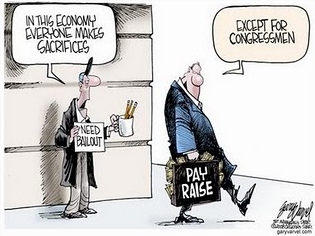Section 1. All persons born or naturalized in the United States and subject to the jurisdiction thereof, are citizens of the United States and of the State wherein they reside. No State shall make or enforce any law which shall abridge the privileges or immunities of citizens of the United States; nor shall any State deprive any person of life, liberty, or property, without due process of law; nor deny to any person within its jurisdiction the equal protection of the laws.
Section 2. Representatives shall be apportioned among the several States according to their respective numbers, counting the whole number of persons in each State, excluding Indians not taxed. But when the right to vote at any election for the choice of electors for President and Vice President of the United States, Representatives in Congress, the Executive and Judicial officers of a State, or the members of the Legislature thereof, is denied to any of the male inhabitants of such State, being twenty-one years of age, and citizens of the United States, or in any way abridged, except for participation in rebellion, or other crime, the basis of representation therein shall be reduced in the proportion which the number of such male citizens shall bear to the whole number of male citizens twenty-one years of age in such State.
Section 3. No person shall be a Senator or Representative in Congress, or elector of President and Vice President, or hold any office, civil or military, under the United States, or under any State, who, having previously taken an oath, as a member of Congress, or as an officer of the United States, or as a member of any State legislature, or as an executive or judicial officer of any State, to support the Constitution of the United States, shall have engaged in insurrection or rebellion against the same, or given aid or comfort to the enemies thereof. But Congress may by a vote of two-thirds of each House, remove such disability.
Section 4. The validity of the public debt of the United States, authorized by law, including debts incurred for payment of pensions and bounties for services in suppressing insurrection or rebellion, shall not be questioned. But neither the United States nor any State shall assume or pay any debt or obligation incurred in aid of insurrection or rebellion against the United States, or any claim for the loss or emancipation of any slave; but all such debts, obligations and claims shall be held illegal and void.
Section 5. The Congress shall have power to enforce, by appropriate legislation, the provisions of this article.
The Thirteenth Amendment freed the slaves, but did not make them citizens. The Fourteenth Amendment made the newly freed slaves citizens. It declared that all persons born or naturalized within the United States were citizens. It made provisions for due process, which the Supreme court has used to incorporate the Bill of Rights to the states. It demanded equal protection of the laws for all citizens. However, the Fourteenth Amendment denied convicted felons the right to vote even if they served their time and prohibited anyone who served or provided aid to the rebellion to hold office. It also gave Congress the authority to enforce the amendment through legislation.
This political cartoon suggests that bans on gay marriage violate Section 1 of the 14th Amendment:
"No State shall make or enforce any law which shall abridge the privileges or immunities of citizens of the United States; nor shall any State deprive any person of life, liberty, or property, without due process of law; nor deny to any person within its jurisdiction the equal protection of the laws."
http://jimmays.com/wp-content/uploads/2009/09/gay_marriage.gif
In this video (Part 1 of 4) Director of Immigrant and Refugee Services Debby Alter from the Jewish Family and Vocational Service shares step by step how to become naturalized. After becoming naturalized, the 14th Amendment will protect one's new citizenship rights.













